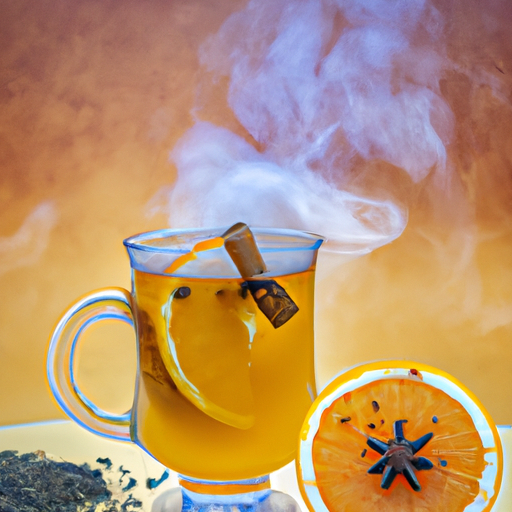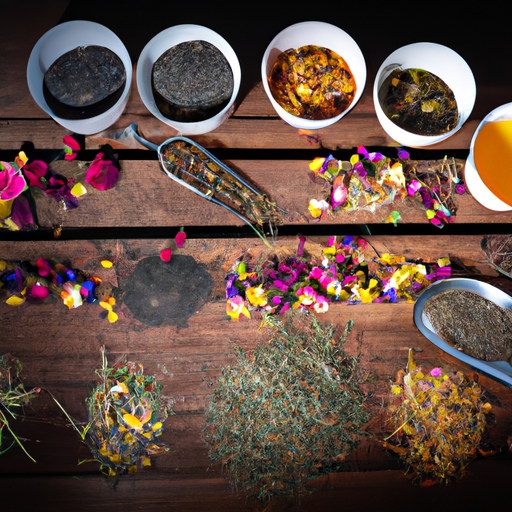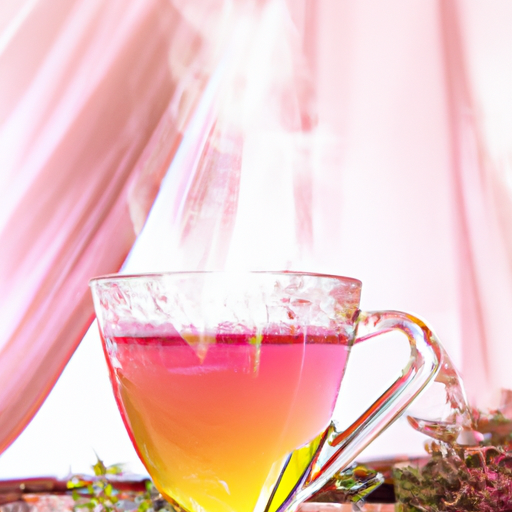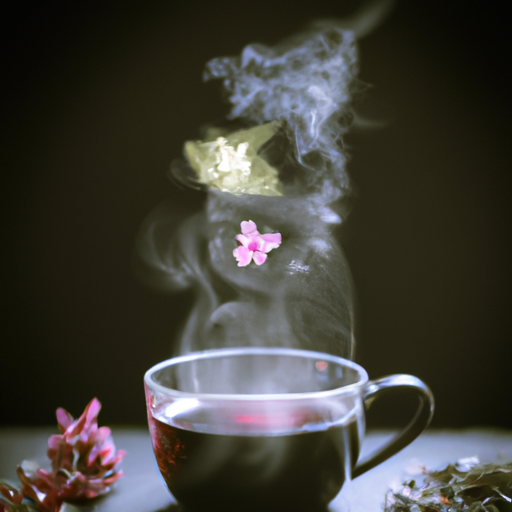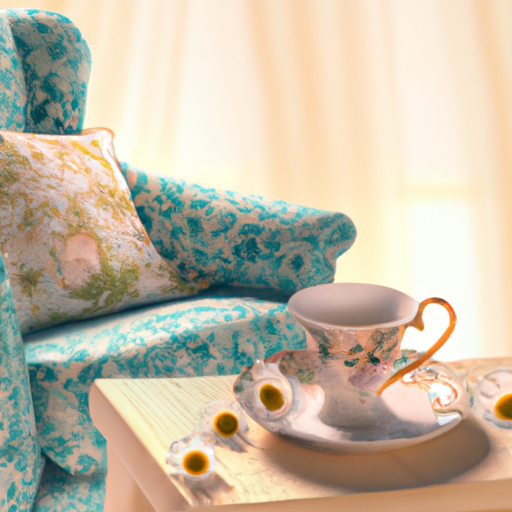Are you a tea lover like me? There’s nothing quite like a steaming cup of herbal tea to soothe the soul and awaken the senses. But have you ever wondered how long that delicious brew remains good after it’s been made? Well, let me tell you, the answer may surprise you!
When it comes to the longevity of brewed herbal tea, the possibilities are practically endless. I mean, it’s like magic in a cup! But, of course, there are a few factors that can influence just how long that magic lasts. From the type of herbs used to the storage conditions, every detail matters.
In this article, I’m going to delve into the shelf life of brewed herbal tea, exploring the factors that affect its longevity and the telltale signs that it may have gone bad. Plus, I’ll share some tips on how to properly store your brewed tea to extend its shelf life and even some creative ways to use any leftovers.
So, if you’re ready to unlock the secrets of brewing the perfect cup of herbal tea and enjoy it fresh and flavorful for as long as possible, let’s dive in!
Key Takeaways
- Properly stored, brewed herbal tea can stay fresh for up to 2-3 days in the refrigerator.
- Factors that affect the longevity of brewed herbal tea include storage conditions, type of herbal tea, and addition of sweeteners or milk.
- Storing brewed herbal tea in the refrigerator slows down the growth of bacteria and prolongs its freshness.
- Using airtight containers and proper storage techniques can extend the shelf life of brewed herbal tea and reduce waste.
The Shelf Life of Brewed Herbal Tea
Brewed herbal tea is a delightful and healthy beverage, but how long can you enjoy it before it starts to lose its freshness? The shelf life of brewed herbal tea can vary depending on several factors. However, if stored properly, it can generally stay fresh for up to 2-3 days in the refrigerator.
One of the great things about brewed herbal tea is that there are ways to reuse it even after it has been brewed. You can use it as a base for homemade iced tea by adding some ice cubes and a bit of sweetener. It can also be used as a flavorful addition to smoothies or as a marinade for meats. The possibilities are endless, and by reusing brewed herbal tea, you can maximize its benefits and reduce waste.
Drinking herbal tea has numerous benefits. It can help with digestion, boost the immune system, promote relaxation, and even aid in weight loss. The natural compounds found in herbal teas have been used for centuries for their healing properties. So, not only can you enjoy the refreshing taste of brewed herbal tea, but you can also reap its many health benefits.
Understanding the shelf life and ways to reuse brewed herbal tea is important, but there are other factors that affect its longevity. Let’s explore these factors and discover how to make the most out of your brewed herbal tea.
Factors That Affect the Longevity of Brewed Herbal Tea
When it comes to the longevity of brewed herbal tea, there are several factors that come into play. First, the storage conditions play a crucial role in determining how long the tea will stay fresh. Properly storing the tea in an airtight container in a cool and dark place can help prolong its shelf life.
Additionally, the type of herbal tea can also affect its longevity, as some varieties may have a shorter or longer shelf life than others.
Lastly, the addition of sweeteners or milk to the brewed tea can also impact its freshness, as these additives can promote the growth of bacteria and shorten the tea’s lifespan.
Storage Conditions
Stored correctly, herbal tea can retain its freshness and flavor for an extended period. The key to preserving brewed herbal tea lies in maintaining the right storage conditions. First, using the best containers is crucial. Opt for airtight glass jars or metal tins with tight-fitting lids to prevent air and moisture from seeping in. This will help preserve the tea’s aroma and taste. Secondly, store the tea in a cool, dark place away from direct sunlight and heat sources. The ideal temperature range for storing brewed herbal tea is between 40°F (4°C) and 60°F (15°C). This ensures that the tea remains fresh and doesn’t degrade quickly. By following these storage guidelines, you can enjoy your brewed herbal tea for longer periods. Speaking of types of herbal tea…
Type of Herbal Tea
To truly elevate your tea-drinking experience, you’ll want to explore the diverse and delightful world of different types of herbal blends.
Herbal teas come in a wide variety of flavors, each offering its unique taste and aroma. Whether you crave the soothing notes of chamomile or the invigorating kick of peppermint, there’s a herbal tea to suit every palate.
Not only do these teas offer a delightful experience for your taste buds, but they also come with numerous health benefits. From boosting immunity to aiding digestion, herbal teas are packed with natural compounds that promote overall well-being.
So, sip on a cup of herbal tea and indulge in its delicious flavors while reaping the goodness it has to offer.
Now, let’s move on to the next section and explore the addition of sweeteners or milk to enhance your tea.
Addition of Sweeteners or Milk
Indulging in the addition of sweeteners or milk to your tea can create a symphony of flavors that dance on your taste buds like a sweet melody. When it comes to herbal tea, there are a variety of sweetener alternatives that can enhance the natural taste and provide additional health benefits. Stevia, honey, and maple syrup are popular choices that add a touch of sweetness without the added calories. Not only do these alternatives satisfy cravings, but they also have their own health benefits.
Stevia, for example, is a zero-calorie natural sweetener that can help regulate blood sugar levels. Honey is known for its antibacterial properties and can soothe a sore throat. Maple syrup is a good source of antioxidants and minerals like zinc and manganese.
Now, let’s explore the signs that your brewed herbal tea has gone bad, shall we?
Signs That Your Brewed Herbal Tea Has Gone Bad
If your brewed herbal tea looks cloudy or has a strange smell, it’s time to toss it out. These are clear signs that your tea has gone bad and isn’t safe to consume. While herbal tea doesn’t typically expire like other perishable foods, it can still go bad after a certain period of time.
Here are some common signs that your brewed herbal tea has gone bad:
-
Mold or discoloration: If you notice any mold growth or a change in color, it’s a clear indication that your tea has spoiled.
-
Off-putting smell: If your tea has a strong, unpleasant odor, it’s a sign that bacteria or other harmful microorganisms have developed.
-
Bitter or sour taste: While herbal tea can have a naturally bitter taste, if it becomes overly bitter or sour, it’s a sign that it has deteriorated.
-
Fizzing or effervescence: If your herbal tea starts to fizz or bubble, it’s a sign of fermentation and should not be consumed.
When your herbal tea has gone bad, there are ways to repurpose it instead of simply throwing it away. However, it’s important to note that reusing expired tea may not be safe, especially if it’s been contaminated.
To avoid this, it’s crucial to store brewed herbal tea properly.
How to Properly Store Brewed Herbal Tea
When properly stored, your brewed herbal tea will remain fresh and delicious for an extended period of time. Proper temperature and preventing oxidation are key factors in ensuring the longevity of your tea. To maintain its freshness, it is important to store your brewed herbal tea in a cool and dark place, away from direct sunlight and heat sources. This will help prevent the tea from deteriorating due to exposure to light and high temperatures.
To further protect your tea from oxidation, it is recommended to transfer it into an airtight container. This will minimize the contact with oxygen, which can cause the tea to lose its flavor and aroma. Additionally, using a container that is opaque or tinted can provide an extra layer of protection against light exposure.
To help you visualize the impact of proper storage on the shelf life of brewed herbal tea, take a look at the table below:
| Storage Method | Shelf Life of Brewed Herbal Tea |
|---|---|
| Proper temperature | Extended |
| Preventing oxidation | Prolonged |
By following these guidelines, you can extend the shelf life of your brewed herbal tea and enjoy its freshness for a longer period of time. Now, let’s move on to some tips for further extending the shelf life of your tea.
Tips for Extending the Shelf Life of Brewed Herbal Tea
To extend the shelf life of brewed herbal tea, it’s important to follow a few key tips.
First, use airtight containers to keep the tea fresh for a longer period of time. This prevents exposure to air and moisture.
Storing the tea in the refrigerator can also help slow down the growth of bacteria and prolong its freshness.
Lastly, it’s crucial to avoid contamination. Use clean utensils and make sure no foreign substances come into contact with the tea.
By following these tips, you can enjoy your brewed herbal tea for an extended period of time.
Using airtight containers
Store your freshly brewed herbal tea in an airtight container to lock in its aromatic flavors and extend its shelf life. Airtight containers are essential for preserving the freshness of brewed herbal tea. They prevent air, moisture, and other contaminants from entering, which can cause the tea to go stale or lose its flavor. By sealing the container tightly, you can ensure that your tea remains flavorful and enjoyable for a longer period of time. To help you understand the benefits of using airtight containers, take a look at the table below:
| Airtight Containers | Benefits |
|---|---|
| Keeps tea fresh | Locks in flavors and aromas |
| Prevents oxidation | Maintains tea’s color and taste |
| Protects from moisture | Preserves quality and prevents mold |
Now that you know the advantages of using airtight containers, let’s move on to the next section about storing brewed herbal tea in the refrigerator.
Storing in the refrigerator
Chilling your freshly-brewed herbal elixir in the refrigerator is like giving it a cool, cozy blanket to snuggle up in. Not only does refrigeration help to extend the shelf life of your herbal tea, but it also enhances its taste and aroma.
To store your herbal tea in the refrigerator, opt for glass containers instead of plastic ones, as they’re less likely to absorb any unwanted flavors. Another clever trick is to freeze your tea in ice cube trays. This way, you can easily pop a cube or two into hot water whenever you crave a quick and refreshing cup.
By storing your herbal tea properly, you can ensure its freshness for up to a week.
Now, let’s dive into the next section and explore how to avoid contamination when brewing herbal tea.
Avoiding contamination
When it comes to keeping your refreshing elixir free from any unwanted guests, cleanliness is key. Preventing bacterial growth is essential in storing brewed tea for an extended period of time.
After brewing, it’s important to let the tea cool down before transferring it to a clean, airtight container. This’ll help minimize the risk of contamination. It’s also crucial to wash your hands thoroughly before handling the brewed tea to avoid introducing any bacteria.
Storing the tea in the refrigerator can help prolong its freshness, but it’s important to keep it away from any strong-smelling foods to prevent flavor transfer. Additionally, it’s recommended to consume the tea within 3-4 days to ensure its quality.
Now, let’s explore some creative ways to use leftover brewed herbal tea without wasting a single drop.
Creative Ways to Use Leftover Brewed Herbal Tea
One clever use for leftover brewed herbal tea is to infuse it into homemade popsicles, adding a refreshing twist to a classic summer treat. For example, steeping chamomile tea and mixing it with honey and lemon before freezing creates a soothing and delicious frozen dessert that can help calm a sore throat.
Here are five creative ways to use leftover brewed herbal tea:
-
Make herbal tea ice cubes and add them to your favorite beverages for a burst of flavor.
-
Use brewed tea as a base for homemade salad dressings or marinades to add a unique taste.
-
Create a natural facial toner by combining brewed herbal tea with witch hazel and a few drops of essential oils for DIY skincare.
-
Add leftover tea to your bath for a relaxing and aromatic soak that can help soothe your skin.
-
Use brewed herbal tea to infuse flavor into homemade baked goods, such as cakes or muffins.
These creative recipes and DIY skincare ideas can help you make the most of your leftover brewed herbal tea. Now, let’s move on to the next section about enjoying fresh and flavorful brewed herbal tea.
Enjoying Fresh and Flavorful Brewed Herbal Tea
After exploring creative ways to use leftover brewed herbal tea, let’s now focus on enjoying fresh and flavorful brewed herbal tea. As an avid tea drinker, I’ve discovered several ways to enhance the flavor of herbal tea and maximize its benefits.
First, steeping time is crucial in achieving the perfect cup of herbal tea. It’s important to follow the recommended steeping time for each type of herbal tea to extract the optimal amount of flavor and nutrients. Additionally, using fresh, high-quality herbs and tea leaves can significantly enhance the taste and aroma of the brewed tea.
Another way to enhance the flavor is by adding natural sweeteners like honey or stevia, which can provide a touch of sweetness without overpowering the herbal notes. Experimenting with different combinations of herbs and spices can also create unique flavor profiles and add depth to your cup of tea.
Aside from its delightful taste, herbal tea offers numerous health benefits. It is known for its antioxidant properties, which can help boost the immune system and protect against cell damage. Herbal teas can also aid digestion, promote relaxation, and improve sleep quality.
Enjoying fresh and flavorful brewed herbal tea is a delightful experience that can be enhanced by following proper steeping techniques, using high-quality ingredients, and experimenting with different flavors. Not only does herbal tea offer a delicious beverage option, but it also provides numerous health benefits. So grab a cup and savor the goodness of herbal tea!
Frequently Asked Questions
Can I reuse leftover brewed herbal tea?
Yes, you can reuse leftover brewed herbal tea. It’s a great way to reduce waste and still enjoy the health benefits of herbal tea. Just make sure to store it properly and consume it within a day or two.
Can I drink expired brewed herbal tea?
Drinking expired brewed herbal tea can pose health risks. Consuming expired tea may lead to bacterial growth, which can cause food poisoning or other illnesses. It’s best to discard any tea that has passed its expiration date.
Can I leave brewed herbal tea at room temperature overnight?
Yes, you can reheat brewed herbal tea, but it’s not recommended to leave it at room temperature overnight. There are potential health risks associated with drinking overnight brewed herbal tea, such as bacterial growth.
Can I add milk or sweeteners to brewed herbal tea?
Yes, you can add milk or sweeteners to brewed herbal tea. Adding honey enhances the taste and provides additional health benefits. Milk can add a creamy texture and make it more enjoyable to drink.
Can I freeze brewed herbal tea for later use?
Freezing brewed herbal tea is a great way to extend its lifespan and enjoy it later. It allows you to benefit from the convenience of having pre-brewed tea on hand whenever you want.
Conclusion
In conclusion, brewed herbal tea can provide a delightful and refreshing experience, but it’s important to be mindful of its shelf life. By understanding the factors that affect longevity and properly storing it, you can enjoy fresh and flavorful tea for longer.
Remember to look out for signs of spoilage and consider creative ways to use any leftovers. So, sip, savor, and stay savvy about the shelf life of your brewed herbal tea to ensure a satisfying and sensational sip every time.


